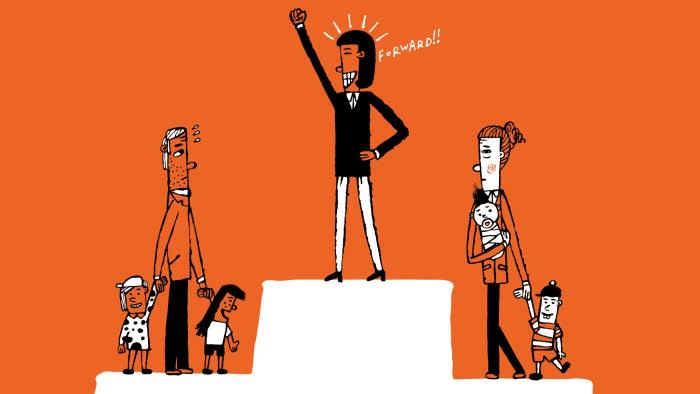Beware the March of the Childless Voter
In recent years, there has been a growing trend of childless individuals becoming a significant voting bloc in many countries around the world. These individuals, often referred to as the „childless voter,“ are choosing not to have children for various reasons, and their influence on politics and policies is starting to become more pronounced.
The Rise of the Childless Voter
There are several reasons why individuals are choosing to remain childless. Some cite financial concerns, career aspirations, or a desire for personal freedom as driving factors. As a result, the number of childless adults is on the rise, and they are starting to have a notable impact on political decision-making.
Impact on Policies
One of the areas where childless voters are having a significant influence is in the realm of social policies. As these individuals do not have children to consider, their priorities and concerns may differ from those with families. This can lead to policies that may not adequately address the needs of families and children.
Economic Policies
Childless voters may also have different perspectives on economic policies that affect families. For example, they may prioritize tax breaks for individuals over child-related benefits, leading to a shifting of resources away from programs that support families.
Healthcare and Education
Additionally, childless voters may have varying views on healthcare and education policies. They may be less inclined to support initiatives that benefit families or children, which could have long-term implications for the well-being of society as a whole.
Challenges and Concerns
While the rise of the childless voter is bringing attention to a previously overlooked demographic, it also raises some challenges and concerns. For example, there is a fear that policies and programs geared towards families and children may be overlooked or underfunded if the priorities of childless voters continue to shape political decisions.
Social Cohesion
There is also a concern about the impact of an increasingly childless society on social cohesion. The decision not to have children can have implications on future population growth, which in turn can have effects on the workforce, economy, and overall societal well-being.
Prioritization of Needs
Another challenge is the potential for the needs and concerns of families and children to be marginalized as the influence of childless voters grows. It is important for policymakers to strike a balance between addressing the concerns of all demographics to ensure a more equitable and inclusive society.
Future Trends
As the number of childless voters continues to rise, it will be important for policymakers to consider the diverse perspectives and needs of all individuals in society. This requires a more nuanced understanding of the motivations and priorities of childless voters and a commitment to creating policies that benefit all segments of the population.
Conclusion
The rise of the childless voter is a phenomenon that is reshaping the political landscape in many countries. As these individuals become a more significant voting bloc, their influence on policies and decision-making is becoming more pronounced. It is crucial for policymakers to consider the unique perspectives and needs of childless voters while also ensuring that policies are inclusive of all demographics to create a more equitable society.
FAQs
What are some reasons why individuals are choosing to remain childless?
Some individuals may choose not to have children due to financial concerns, career aspirations, or a desire for personal freedom.
How are childless voters influencing policies?
Childless voters may have differing perspectives on social, economic, and healthcare policies, which can impact the prioritization of government resources.
What are some challenges associated with the rise of the childless voter?
Challenges include potential underfunding of programs that benefit families and children, the impact on social cohesion, and the marginalization of family concerns in political decision-making.




